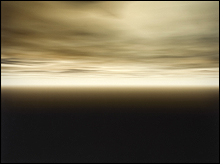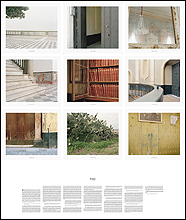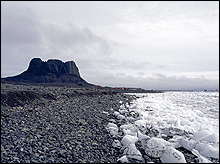![]()
THE
SOCIAL CONSTRUCTION OF THE LANDSCAPE
Opening: November
27, at 20:00 h.
Dates: November 28, 2014 – March 29, 2015
Spaces: Monument Zone, South Cloister and Priory
Curator: Yolanda Torrubia Fernández
Exhibition organised by: Centro Andaluz de Arte
Contemporáneo, DKV Seguros y Nueva Colección Pilar
Citoler
Exhibition Session: Landscape: Contemplation, Memory and
Activism
Alfonso Albacete · Lara Almarcegui · Tete Álvarez
· Olivo Barbieri · Sergio Belinchón · Bleda
y Rosa · Miguel Brieva · François Bucher · Salomé del Campo ·
Daniel Canogar · Juan Manuel Castro Prieto · Gerardo Custance
· Patricia Dauder · Daniel Faust · Jorge Fuembuena
· Santiago Giralda · Dionisio González · José
Guerrero · Federico Guzmán · Cristina Iglesias ·
Leandro Katz · Miki Leal · Zoe Leonard · Mark Lewis
· Anna Malagrida y Mathieu Pernot · Mireya Masó ·
Rosell Meseguer · Matt Mullican · Eduardo Nave ·
Guillermo Pérez Villalta · Paloma Polo · Xavier Ribas
· Néstor Sanmiguel · Soledad Sevilla · Alejandro
Sosa · Zoé T. Vizcaíno · Santiago Ydáñez
· Jorge Yeregui · Fernando Zóbel · Jesús
Zurita
The landscape has been a recurrent theme throughout art history;
the avant-garde movements endowed it with new aesthetics and intentions,
and today it is one of the fields explored by contemporary artists.
As Joan Nogué writes in La construcción social
del paisaje, the book from which this show takes its title,
"The landscape can be interpreted as a social product, as the
result of a collective transformation of nature and as the cultural
projection of a society onto a given space". In that sense,
"It not only shows us how the world is, but it is also a construct,
a composition, a way of seeing the world”1.
Landscape is not the natural scenery or location within our field of vision; it is what we make of it, a cultural construct requiring an interpretation that takes existing physical elements and turns them into a landscape. In this case, it is something forged in the creative process, where the artist's intention, intervention and interpretation of a territory yield a vision or an idea.
Included in the exhibition session entitled Landscape: Contemplation, Memory and Activism, this show features a wide selection of artists working from different perspectives and with diverse media, have made landscape a central pillar of their oeuvres. Photographs, paintings, drawings, installations and videos have been selected for this exhibition from the Centro Andaluz de Arte Contemporáneo Collection, the DKV Collection and the New Pilar Citoler Collection, complementing each other and illustrating how artists interpret the landscape today and how the genre has been revived in recent decades.
The works in the show explore various questions
related to landscape: different ways of approaching nature, at times
concrete and at others abstract; the intervention of man or memory
as a fundamental element in the construction of landscape; or the
idea that the important thing is not what we see, but rather what
is not present and yet is part of the history of the place and of
people. The post-modern city and its periphery of vague, shifting
limits have also caught the attention of several artists, who invite
us to reflect on the notions of transformation, ruin, abandonment
and the aesthetics of deterioration and decadence. Each work broaches
the theme in a different way, using different formats and languages,
but they share a common denominator: all are socially constructed
landscapes.
| ADDITIONAL DOCUMENTATION |
___________________________
1- Nogué, Joan. “El paisaje como constructo social”,
in La construcción social del paisaje. Madrid: Biblioteca
Nueva, 2007, pp. 11-12.


